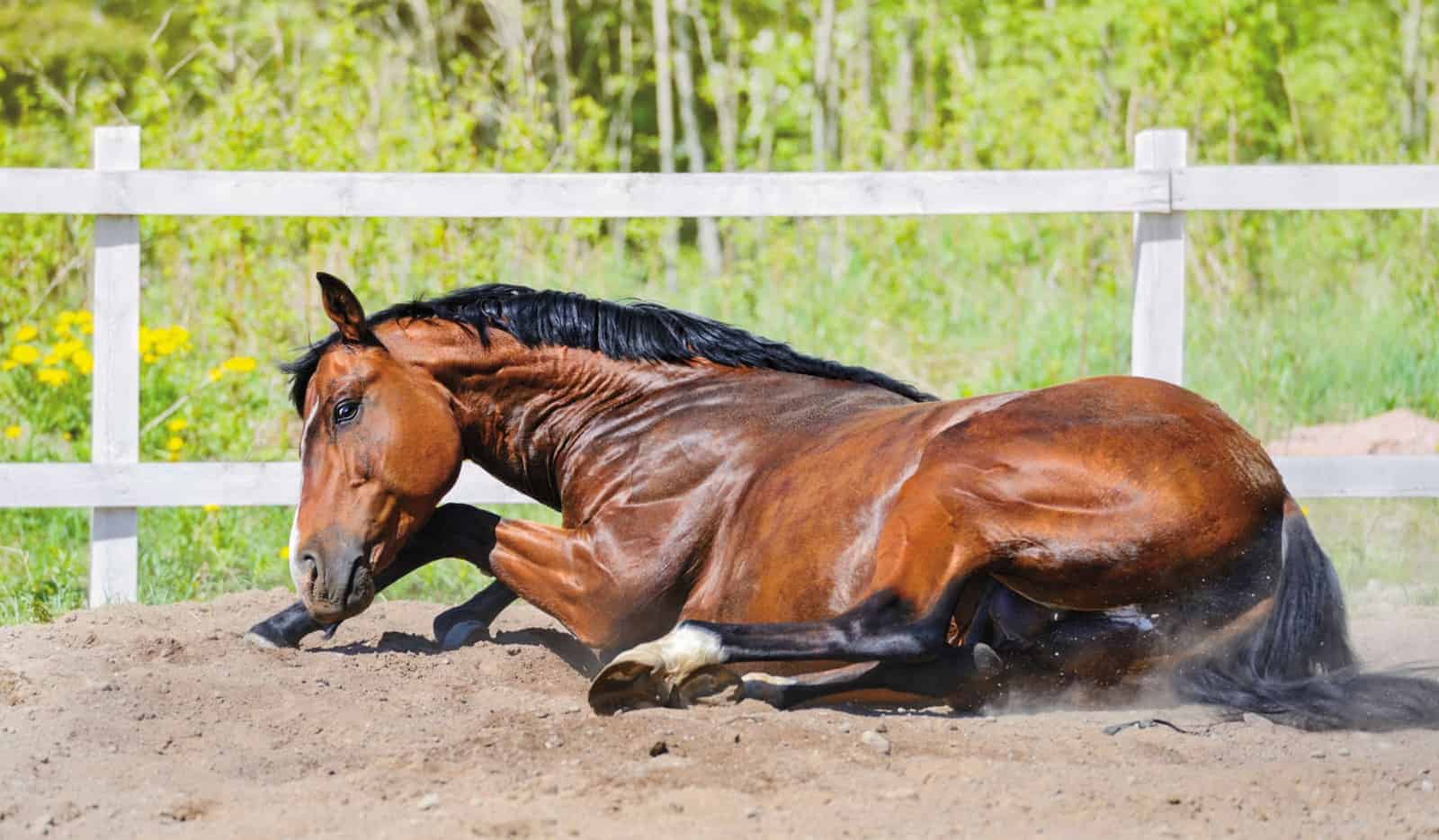Fasting Horses Reduces Gut Microbiota Number, Diversity
- Topics: Colic, Digestive System, Digestive Tract Problems, Horse Care, Nutrition

Fortunately, though, healthy horses can get that microbiotal richness back within a day of eating normally. Even so, owners, veterinarians, and researchers alike need to be aware of the kinds of changes that happen in horses’ guts when they’re fasted, said Louise Southwood, BSc (Vet), Dipl. ACVS, ACVECC, a professor in emergency medicine and critical care at the University of Pennsylvania’s School of Veterinary Medicine, in Kennett Square.
“Withholding food for a day definitely changes the microbiota, but it’s important to keep in mind that this is very reversible,” Southwood said. “Within 24 hours (after fasting ends), it can come back to normal.”
Southwood didn’t set out to determine whether fasting is good or bad for horses’ microbiota, she said. Rather, her main objective was from a research point of view, to help scientists better interpret microbiota test results in colicking horses.
That’s because veterinarians usually recommend withholding food from horses when they’re having a bout of colic (in case food in the digestive system is getting trapped, for example), she said. Researchers have already noted that colicking horses have a different microbiota compared to healthy horses. So Southwood’s team wondered how much of that change in microbiota might be due to the horse having been fasted because of the colic.
Fecal Analyses of Fasted Mares
Southwood and her fellow researchers worked with eight healthy mares of various breeds, aged 14 to 23, fed fresh hay without concentrated feeds. They muzzled the mares for a 24-hour period, which prevented them from eating hay but still let them drink water. For the sake of humane treatment, however, they gave all the horses a handful of senior feed once every six hours. The team collected fecal samples from the mares at several intervals before, during, and after fasting. Sequencing of those samples allowed the scientists to determine microbiota changes in each individual horse.
They found that the total number of bacteria living in the microbiota of the mares’ guts dropped significantly, especially after 10 hours of fasting, said Southwood. The number of different bacteria species also dropped, they reported in BMC Veterinary Research. Healthy gut microbiota is usually rich in the amount and diversity of different species of bacteria and other microorganisms. However, they also found that this diversity and amount returned very quickly, within 18 to 24 hours of the horses eating their hay again.
The study’s results confirm that colicking horses might have changes in their microbiota due, at least in part, to having been fasted, she said. That’s especially true when the horse has fasted for at least 10 hours. The findings also suggest that veterinarians should try to start feeding small amounts as soon as possible after the colic episode has ended to reestablish the gut microbiome, she said: “You don’t want to be withholding food longer than necessary,” she said.
Could Microbiota One Day Help Explain Recurrent Colic?
Beyond these main findings, the study gives hope that scientists might be able to eventually find clues in the microbiota to help explain why some horses experience recurrent bouts of colic, Southwood said.
“This study was really a building block to get more information on the bigger picture of the role of the gut microbiota in colic and especially recurrent colic,” she said. “My long-term goal is to try to understand what role, if any, the microbiota has in that—similar to some of the work with humans and inflammatory bowel disease.
“And maybe that will eventually lead us to ways of manipulating the microbiota and finally to help horses with recurrent colic have comfortable lives,” she continued. “And hopefully that can give some relief to owners and caregivers as well, because it’s so frustrating for them. We hope our research will help navigate through this puzzle of gastrointestinal disease in horses.”

Written by:
Christa Lesté-Lasserre, MA
Related Articles
Stay on top of the most recent Horse Health news with











